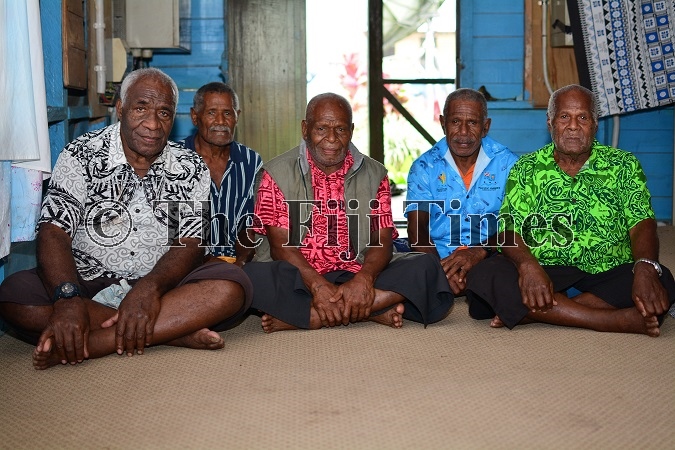Levani Kanailega always had a love affair with words.
The founder and lead singer of renowned iTaukei music group Seniqumu kei Naqarawai said words and their meanings fascinated him from as early as his primary school days.
The Naqarawai villager from Namosi said he was always amazed how a few letters scrawled on paper could have much impact on people’s lives.
The 84-year-old said while school lessons were taught in English, he found that vernacular words had a unique power of capturing situations and expressing feelings and emotions in a more profound manner.
The group Seniqumu kei Naqarawai was formed in 1972 and named after their clan totemic plant — qumu.
And it was here that he penned the group’s most memorable hit, Na Waidina Au Irova, which was released in the early ‘70s.
The 12-member ensemble composed, recorded and released two albums with the then Fiji Broadcasting Commission (now Fijian Broadcasting Corporation) in the mid ‘70s and the songs remain popular to date.
As the songs began to play over the radio, the group received numerous requests to perform at different functions and venues.
Kanailega said most of the invitations they received were from the people of Namosi, Naitasiri and Navosa provinces.
He recalled one time when they were invited to serenade at Wainimakutu Village, Namosi, at the opening of the village’s community hall.
“I was at home that evening when a gentleman from Wainimakutu asked us to perform in their village the very next day,” he said.
“After he went back to his village, I called all the group members together and told them about the invitation.
“And at the same time, I composed a song about the opening of the community hall.
“We practised the song that evening and by midnight, the lyrics and melody of the song was all set to go.
“The people who heard the song during our rehearsal, thought that we had been practising it for one week.
“When we performed it at Wainimakutu Village the following day, people were so surprised to hear the song and they were very happy about the way I had composed it.”
Kanailega said one day a man from Waisa Village, Naitasiri, asked him whether he sought some kind of spiritual power whenever he composed a song.
When Kanailega pressed him about the question, the Waisa villager said his songs were so meaningful and deep that it was as if he had been inspired by a higher spirit.
“I told him that when I compose a song, the words flow and I sing it from my heart.
“If the song is about broken families, I compose the lyrics in such a way that when the lady of the house hears the words, she will want to go back to her husband and family.
“If the song is about going up to the moon, I write the words and sing the song like I’m not coming back to Earth.
“I believe that is why our songs became so popular in the ‘70s.
“It’s because they have a lot of meaning. Not like today, nearly all the sigidrigi bands sing songs about all the different kinds of roses.”
He said during the ‘70s, there was no other group in Namosi so they became the musical ambassadors of their province.
Kanailega said they were proud of their achievement because they toured places around Fiji and entertained people from every corner of the country.
He said he chose to go into music because it lifted people’s spirits and captured events and people that would be sung about for many years to come.
Kanailega said Seniqumu kei Naqarawai disbanded when the members made a decision to prioritise their faith in God.
“Today, we sing gospel music but every now and then, I tune my radio to Radio Fiji One because of the old songs played over it.
“One thing that disappoints me though is all the electronic music done on the computer these days.
“In the olden days, people liked to hear our songs because they were all recorded with live instruments — with the guitars and ukulele. And you could hear all the different voices harmonise, not like today where only one person records the three voices.”
The octogenarian said his advice to youngsters who had dreams of going into music was to listen to the old songs and to compose lyrics that were meaningful.
“Those songs last forever.”




